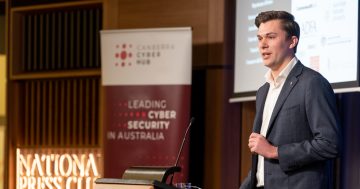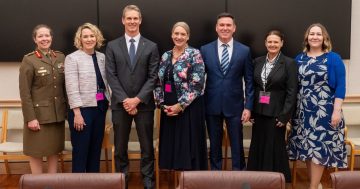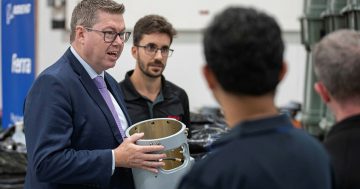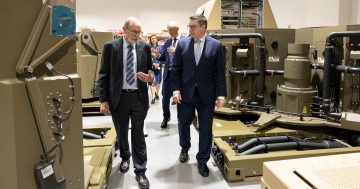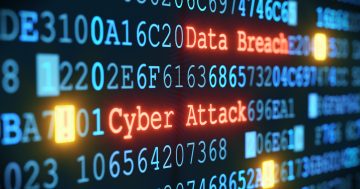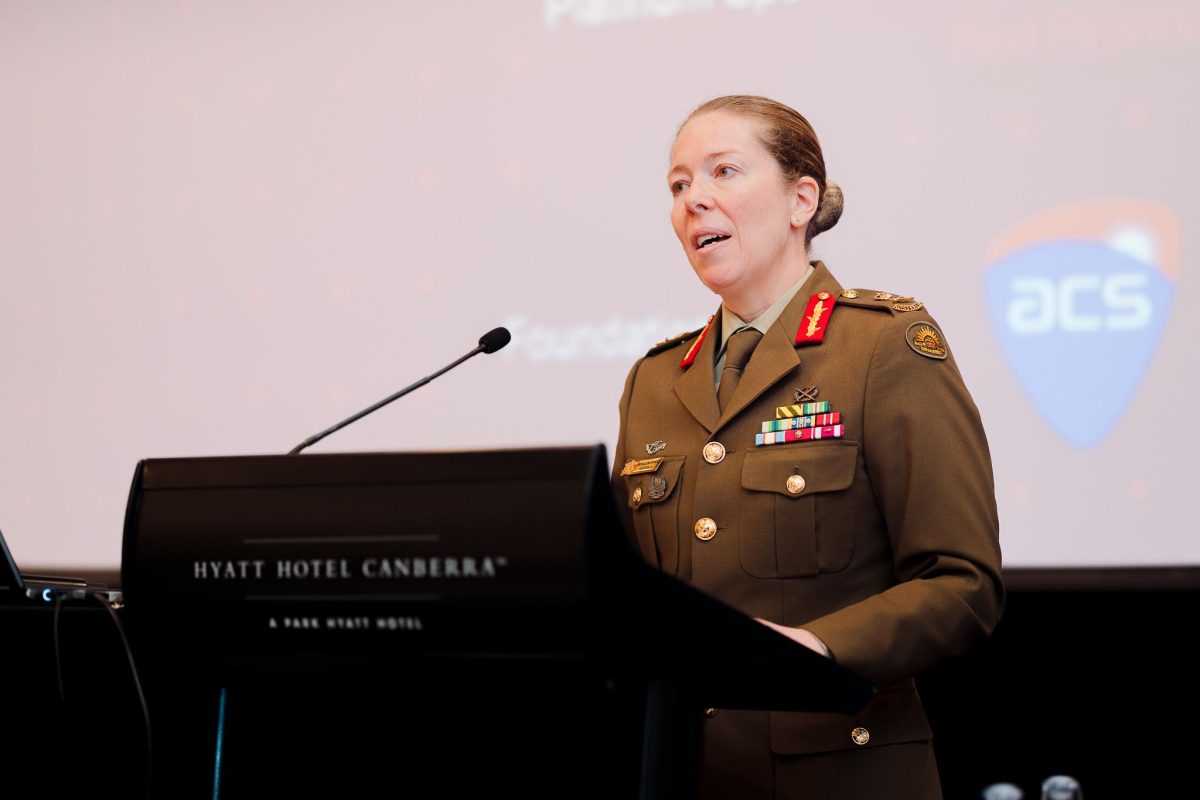
National Cyber Security Coordinator, Lieutenant General Michelle McGuinness, addresses the Canberra Cyber Hub. Photo: Supplied.
Australia’s cyber security industry is suffering from a chronic shortage of appropriately skilled professionals, but the Federal Government insists it is on track to building a world-class, homegrown sector.
A significant part of its strategy is tapping into the expertise of local small and medium-sized enterprises (SMEs) to build the cyber workforce nationwide.
Canberra Cyber Hub hosted the Sovereign Cyber Capability Unlocked event, headlined by national Cyber Security Coordinator, Lieutenant General Michelle McGuinness, who enlisted everyone in the fight against online crime.
Outlining the Federal Government’s 2030 Cyber Security Strategy, the national coordinator left no one uncertain about the magnitude of the increasing rate of cyber attacks.
“I am under absolutely no illusion as to the challenge that is posed by the rapidly changing world of online threats and cyber security,” she said.
“As quickly as one threat is dealt with, many more pop up in its place.”
LTGEN McGuinness stressed that in order for the national strategy to work, all Australians needed to be more vigilant about online activities and be aware of the cyber attack risks.
“The strategy involves everyone. Cyber security is everyone’s business,” she said.
“Whether you’re an individual, a small business, a corporation, a parent or a young person.
“Anyone who has any kind of online connection has a role in achieving our goal of establishing and maintaining the nation’s cyber defence.”
The strategy is the roadmap to help realise the vision of becoming a world leader in cyber security by 2030.
To achieve that goal, more steps need to be in place to protect Australians from cyber crime.
Through the strategy, the government seeks to improve the nation’s cyber security, manage cyber risks and better support citizens and businesses to manage the cyber environment around them.
“My job as coordinator is to position us from playing catch-up … to actually being steps ahead,” LTGEN McGuinness said.
“My job is to prevent, prepare for and respond to major cyber security incidents …
“The strategy, I believe, is a complete paradigm shift in thinking. It’s also a paradigm shift in action.”
LTGEN McGuinness told the SMEs in the room that achieving desired outcomes meant they should be working closely together and with the government.
“It has to be about collaboration. It cannot be about competition,” she said.
“… simply put, the more we make, the more we do here in Australia and the more we have access to through our trusted partners and allies, the less reliant we are on the less-secure supply chains that we can’t control or verify.
“When we build sovereign capability or partner with trusted allies, we become less vulnerable to unexpected global surprises – and we’ve had so many of those in the last decade.
“Big vision as articulated in the cyber strategy is not achieved without strong leadership … and a balance of government and private-sector experience.”
The big challenge is building the workforce.
Locally based SMEs can be an important part of mounting that challenge.
“We know the reality right now is that the cyber security industry is suffering from a chronic shortage of job-ready, diverse and appropriately skilled professionals,” she said.
“We want to assemble a world-class cyber workforce that welcomes people from a wide range of backgrounds – especially women, who are significantly underrepresented across the sector …
“I know that we need talent right now, but it will take time.
“I want to reassure you that we recognise the value of Australia’s vital SMEs and start-up sectors. You are firmly in our sights for future issues and support.
“Sovereign capability is a real priority and there are many opportunities to be a part of the growth in this industry across our nation.”
Canberra Cyber Hub chair Michael Frater said the ACT was home to some of the nation’s leading cyber companies.
The event was a pivotal moment, he said, for industry and government to come together to enhance Australia’s sovereign cyber security capabilities.
“The Canberra cyber ecosystem thrives on collaboration among industry, government, research, and education institutions, driving sustained sectoral growth,” he said.
“However, now more than ever, we must remain vigilant in safeguarding our sovereign capabilities.
“This moment calls for proactive measures to strengthen our cyber defences and ensure Australia’s resilience in an increasingly digital world.”
Original Article published by Chris Johnson on Riotact.


